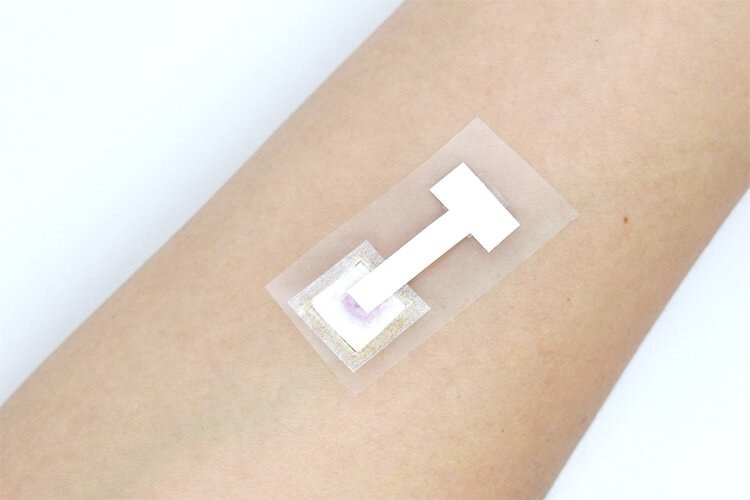The COVID-19 worldwide pandemic is continuing despite major improvements in vaccine technology. Identifying infected people is a significant obstacle to reducing the transmission of the severe acute respiratory syndrome coronavirus 2 (SARS-CoV-2). Researchers from Japan have now created a new, non-blood sample-based antibody-based technique for the quick and accurate identification of SARS-CoV-2.
 Researchers report a new, minimally invasive, antibody-based detection method for SARS-CoV-2 that could lead to the blood sample-free detection of many diseases. Image Credit: Institute of Industrial Science, The University of Tokyo.
Researchers report a new, minimally invasive, antibody-based detection method for SARS-CoV-2 that could lead to the blood sample-free detection of many diseases. Image Credit: Institute of Industrial Science, The University of Tokyo.
The worldwide response to the COVID-19 pandemic has been severely hindered by the inadequate identification of SARS-CoV-2-infected patients, and this issue has been made worse by the high proportion of asymptomatic infections (16% to 38%). As of now, swabbing the nose and throat to obtain samples is the most common detection approach.
The long detection time (4–6 hours), high cost, and need for specialist equipment and medical personnel, especially in countries with low resources, limit the implementation of this procedure.
Identifying SARS-CoV-2-specific antibodies is an additional and alternate approach for confirming COVID-19 infection.
In several nations, point-of-care test strips made of gold nanoparticles are in common usage. They take 10–20 minutes to yield sensitive and reliable findings, but they need blood samples that are taken by a finger prick using a lancing instrument. This hurts and raises the possibility of infection or cross-contamination, and the components of the used kit may provide a biohazard risk.
To develop a minimally invasive detection assay that would avoid these drawbacks, we explored the idea of sampling and testing the interstitial fluid (ISF), which is located in the epidermis and dermis layers of human skin. Although the antibody levels in the ISF are approximately15%–25% of those in blood, it was still feasible that anti-SARS-CoV-2 IgM/IgG antibodies could be detected and that ISF could act as a direct substitute for blood sampling.
Leilei Bao, Study Lead Author, Institute of Industrial Science, The University of Tokyo
The researchers created a novel strategy to sample and evaluate the ISF after proving that ISF would be suited for antibody detection.
First, we developed biodegradable porous microneedles made of polylactic acid that draws up the ISF from human skin. Then, we constructed a paper-based immunoassay biosensor for the detection of SARS-CoV-2-specific antibodies.
Beomjoon Kim, Study Senior Author and Professor, Institute of Industrial Science, The University of Tokyo
The researchers combined these two components to produce a small patch that can detect antibodies on-site in 3 minutes (result from in vitro tests).
This unique detection tool has huge potential for the quick and patient-acceptable screening of COVID-19 and many other infectious diseases. It has the potential to be used in many countries, regardless of their level of income, which is a crucial objective for the treatment of infectious diseases globally.
Journal Reference:
Bao, L., et al. (2022) Anti-SARS-CoV-2 IgM/IgG antibodies detection using a patch sensor containing porous microneedles and a paper-based immunoassay. Scientific Reports. doi.org/10.1038/s41598-022-14725-6.